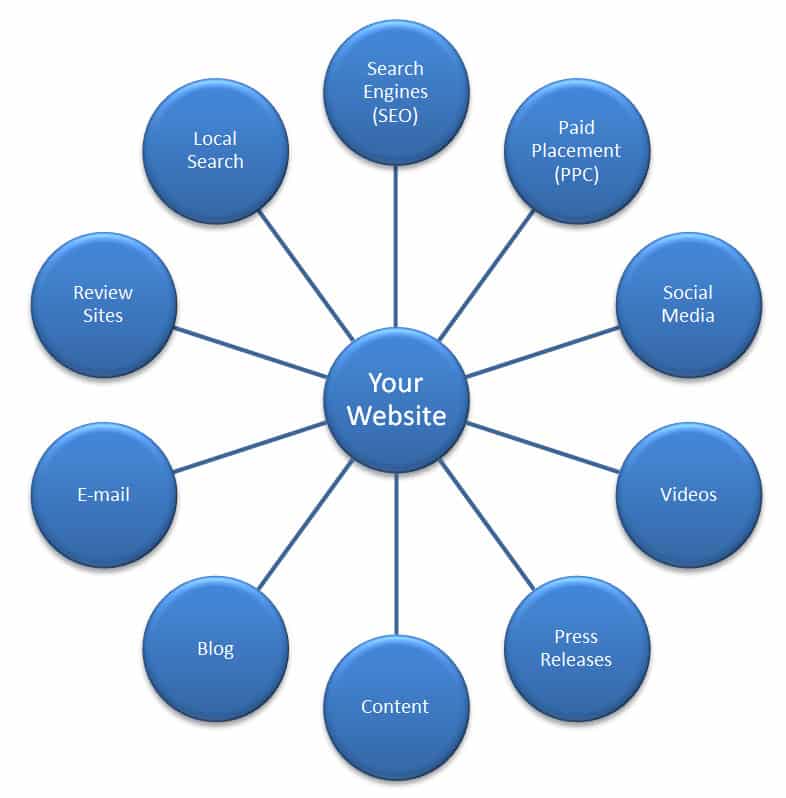Are you a consultant? Do you help people solve problems? I’m a consultant too, and probably just like you, I want to show up at the “top” of Google, hoping that all my potential customers are out there actually searching for me. In the last week, I’ve had three different consulting companies call me asking if I can “SEO their website”. But it occurs to me that a lot of people want “SEO” or search engine optimization, because they believe it’s the magic bullet that will bring hordes of people flocking to their front doorstep, right? We all want to be number one on Google for our favorite search terms. Setting aside the fact that there is no page one on Google anymore, let’s take a step back and look at this from say, the 10,000 foot level. Search engine optimization or SEO is getting your website found on the search engines (like Google or Bing) when someone does a search for a specific search phrase. That’s fine, but now it’s pretty much a given that “SEO” as we knew it from a few years ago is dead. Google has done a really good job of squashing out the cheaters with the various Panda and Penguin updates, which is great for those of us who want to get listed without cheating. Furthermore, your search results are different from my search results, so you can’t even predict where you’ll show up on Google on any given computer, search phrase or even any day. So SEO has now gotten to a point that it’s a mechanical process that you really only need to do once on your website, and you’re done. There’s no real process like “link building” or “getting citations” that is going to result in that magic place in the Google nirvana.
So How Do I Get Found Online?
So instead of obsessing about SEO, how can you get your business found by your ideal clients? People often forget that SEO is only one small piece of all the possibilities to getting found online by your adoring fans. If you haven’t downloaded my “10 Ways To Get Found Online Today” report, please get a free copy today. Here are 10 ways to get found online, and we’ll be exploring each of these over the next several weeks:
- Search Engines – One of the most sought after ways to get found, but the one that we have the least amount of control over where we show up. This is “SEO”.
- Your blog – The need for having a blog is almost axiomatic now. It feeds the search engines, and allows your ideal customers to get to know you the consultant directly, and understand what you’re all about. It’s easy to apply SEO to your blogs so you get found for SO many more terms.
- Local Search – For 97% of the 30 million businesses in the USA, you have a local presence or office. It means that your customers are likely searching for you in your neighborhood. If you’re not found with a local business listing, you’re missing out on a lot of business.
- Review Sites – Review sites often bleed over into local search, since a lot of the review sites show up when someone is searching for a local business. Neglecting to manage and nurture your online reviews however, again can mean you’re leaving business behind.
- Paid Placement (Pay per click or PPC) – This is related to search, but you have much more control over where you show up on the search engines than you do with SEO. It’s a great way to get found for highly competitive search terms when you’re competing with all the other folks for the same phrases.
- Videos – You can search engine optimize your videos and reach a different audience through the second most-used search engine in the world: YouTube. Videos can double as fodder for your blogs, newsletter, press releases, and other online content.
- Press Releases – By syndicating news releases onto the search engines and hundreds of media sites around the country, you can generate spikes of highly targeted traffic to your website when you have something to announce.
- E-mail – Your e-mail list is probably your most valuable source of leads because your readers have given you permission to market directly to them. It can feel like you’re having one-on-one conversations with your ideal clients.
- Social Media – Social media is a great way to reach lots of people, but typically, it’s the least engaged audience you’ll have. It’s very difficult to get much traffic from your social media audience.
- Collateral and Other Content – White papers, webinars, reports, swipe copy, teasers, PDFs, e-books, and so on are all types of “ethical bribes” that you can generate traffic to your website with.
Those are the main ways I see that you can generate traffic to your website from people looking for you online. How many of these have you put in place? Any that I’m missing?

